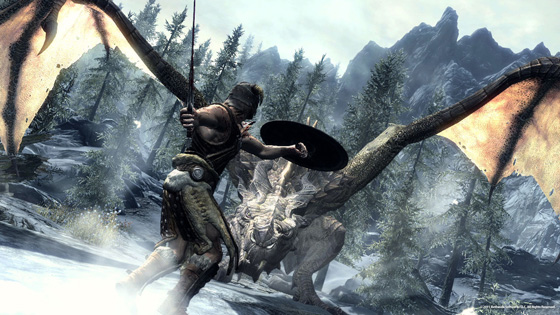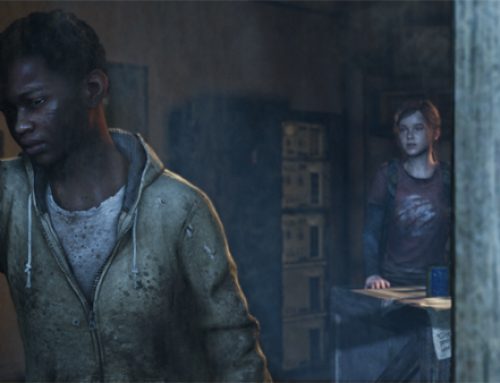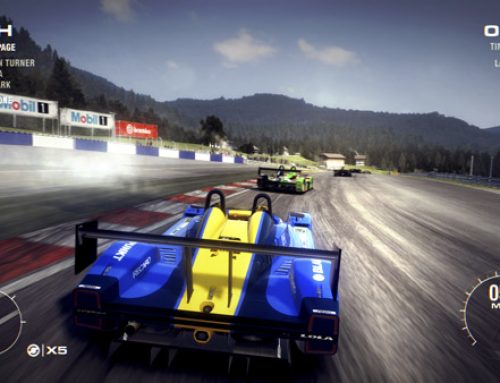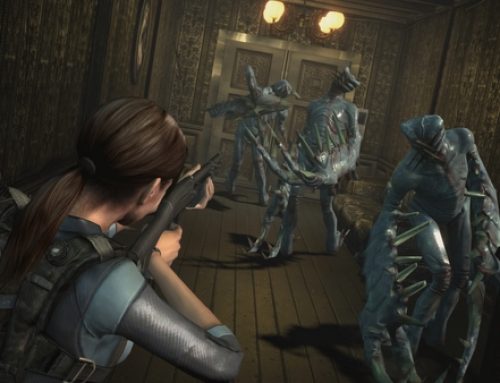You can do just about anything in Skyrim.
In “The Elder Scrolls V: Skyrim,” you can buy a house and get married. You can mine and smelt ore, chop wood and cook food. You can learn magic, mix potions and forge weapons and armor. You can transmute silver to gold, make jewelry to sell, rob your neighbors, assassinate nobles and, knowingly and unwittingly, assist demonic princes from another realm. You can receive the blessings of gods, become the world’s greatest gofer, collect every cabbage you can find and drop it in your living room or just wander around, for dozens of hours. There’s a lot of breathtaking scenery.
You can also ignore all that stuff, fulfill an ancient prophecy and save the world.
With “Fallout 3” and previous “Elder Scrolls” games “Morrowind” and “Oblivion,” Todd Howard and his team at Bethesda Softworks helped establish the template for the modern, massive single-player epic role-playing adventure. In an era in which seemingly every developer is touting his or her games’ multiplayer features, “Skyrim” digs in its heels and says, “Wait a minute.” It’s aggressively anti-social, all but encouraging you to blow off family members and friends for a month in favor of slaying dragons and storming the castle.
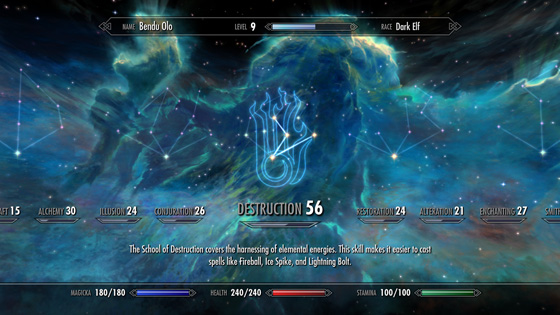
Characters in "Skyrim" level up their skills by using them, and can choose special perks from a constellation-like menu.
Even the in-game spouses are “Skyrim widows,” sitting patiently by the fire, alone, until your character comes home. They’ll offer a home-cooked meal and some money while remarking that you’re “back from some adventure, I bet.” They seem almost resigned as you drop off gear, brew potions and run out the door to stage a prison-break or lead a rebellion against the empire. Marriages in “Skyrim” are devoid of sex and free of children, but that probably goes without saying. Your spouse presumably handles the bills while you save the world.
The central plotline concerns itself with the return of long-extinct dragons to the world. After slaying the first dragon you encounter with the aid of some town guards, your character unwittingly absorbs its soul, revealing him or herself to be Dovahkiin, the “Dragonborn” of legend. Before long, you’re summoned to a mountaintop to learn the language of dragons, allowing your character to breathe fire and perform a number of other amazing feats. The central premise of “Skyrim,” that there are essentially “magic words” you can yell to do cool stuff, is a bit hokey but soon becomes second nature.
The game has a number of factions you can join. There are the Companions, a group of hairy-chested warriors with a fascinating secret; the wizards college; the thieves guild; and the Dark Brotherhood, an organization of contract killers. You can ally with the empire and rid Skyrim from a troublesome rebellion, or hook on with the rebels and evict the imperialist scum from the Nord homeland.
While doing all that, you’ll traverse Skyrim, a mountainous, snow-filled land made up of nine fiefdoms, or holds. The fact that Skyrim is the home to a people called the Nords tells you all you need to know about how much Scandinavian culture has permeated its social fiber. Northern lights, craggy peaks, underground ruins and fantastical creatures make for some lovely sight-seeing when you need a break from the whole “game” aspect of things.
Anyone who’s played any of Bethesda’s other role-playing games will feel at home, though the formula could use a little updating. “Skyrim” is the third “Elder Scrolls” game I’ve played and loved, and all have started me off as an anonymous, completely customizable prisoner who’s revealed to have some greater purpose that’s preordained by a mythical destiny. You’d think by now authorities in Cyrodiil’s provinces would do a better job of screening their inmate populations, checking people’s backgrounds against ancient prophecies and what have you.
Additionally, there are the bugs. Because Bethesda’s games are so massive, and there’s a near-infinite number of things to do, it’s pretty much inevitable that something you do will unearth a bug. (It’s also inevitable that many of these bugs are being patched as you read this.) I haven’t encountered anything game-breaking, but any seasoned veteran of open-world games knows importance of multiple save files. (The game helps out with this by including three autosaves it cycles among, instead of one that overwrites itself constantly.)
Taken as a whole, “Skyrim” is a staggering interactive achievement. It, along with games like “Batman: Arkham City” and “The Legend of Zelda: Skyward Sword,” shows there’s still a future for polished single-player experiences. “Skyrim” is a social game because nearly every gamer I know is talking about it, not because it lets you hear from snotty kids as they snipe you from the other side of the map.
“The Elder Scrolls V: Skyrim” is rated M and costs $60 for the PC, Xbox 360 and PlayStation 3. For this review, I played Xbox 360 and PC versions of the game provided by the publisher, with the bulk of my time spent on Xbox 360. The PC version played similarly but was, of course, much prettier, even on my moderately priced gaming rig.
Follow Eric Wittmershaus on Twitter and join the GameWit blog group on Facebook.

